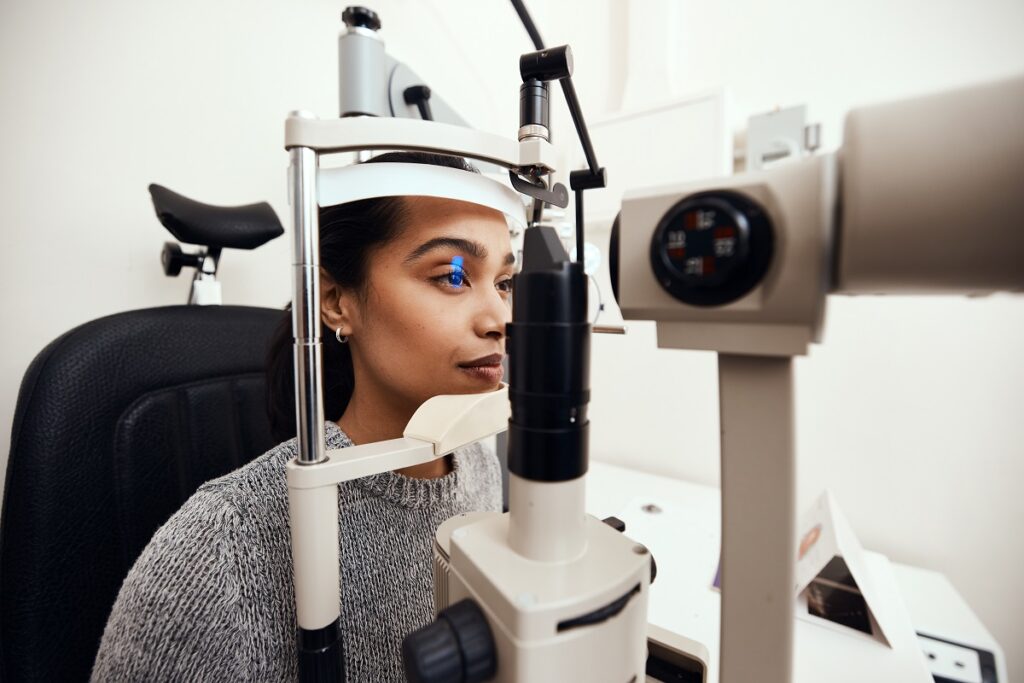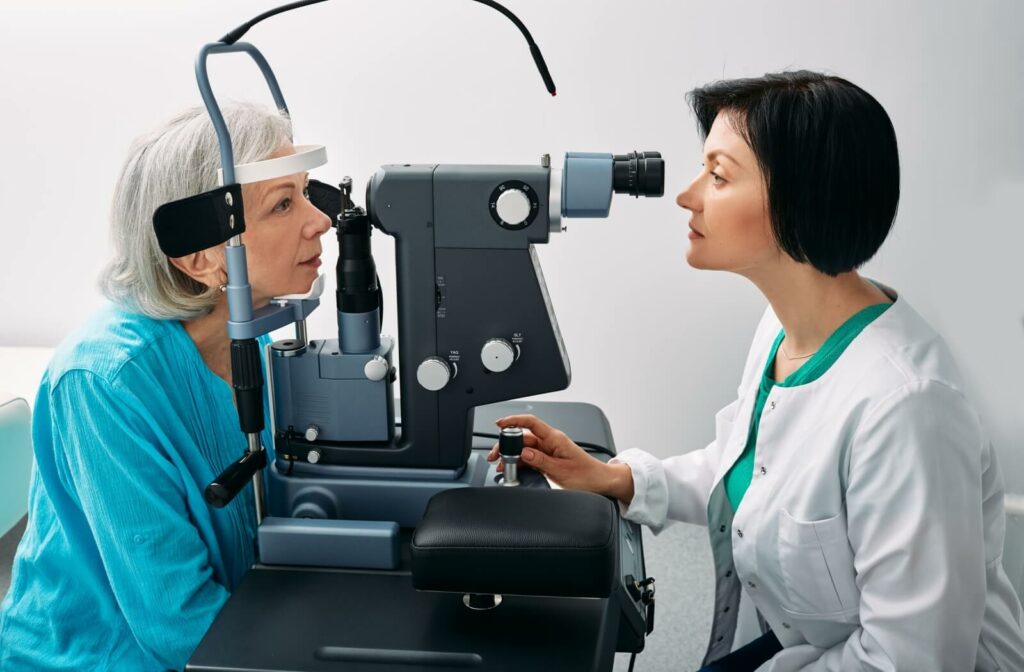Explore Advanced Services at Opticore Optometry for Eye Wellness
Explore Advanced Services at Opticore Optometry for Eye Wellness
Blog Article
Comprehending the Comprehensive Duty of an Eye Doctor in Modern Eye Care
In the advancing landscape of health care, the scope of an eye doctor's function has dramatically widened, prolonging well beyond the boundaries of conventional vision modification. With developments in innovation and a boosting emphasis on preventive care, optometrists are integral in diagnosing and managing persistent eye conditions, while also taking part in early disease detection. Their competence in innovative analysis techniques such as optical comprehensibility tomography is very useful. But just how do these obligations converge with their role in promoting overall eye wellness, and what does this mean for client end results in a collective healthcare atmosphere?
Expanded Scope of Practice
In recent years, the role of eye doctors has actually evolved significantly, with many professionals now accepting an expanded scope of practice that expands past standard eye exams. Their duties currently include a broad range of solutions, consisting of recommending medications for eye problems, handling chronic eye conditions, and executing small surgical treatments.
Better, optometrists are now a lot more associated with collective care, functioning closely with eye doctors, main care medical professionals, and various other health care professionals to make certain alternative client treatment. This interprofessional partnership is important in managing intricate situations that require a multidisciplinary strategy. Furthermore, eye doctors are playing a critical duty in public health and wellness initiatives, such as vision testings and eye health education and learning, focused on boosting neighborhood wellness results.
The expanded extent of practice for eye doctors not only improves their ability to supply extensive treatment but additionally attends to the growing need for available and efficient eye treatment services, adding to overall health care renovations.
Very Early Disease Discovery
Early discovery of eye illness is increasingly coming to be a focal point in the increased function of eye doctors. As main eye care companies, optometrists are distinctly positioned to identify very early signs of eye conditions such as glaucoma, macular degeneration, diabetic person retinopathy, and cataracts. This essential role is critical, as very early diagnosis can substantially enhance the management and prognosis of these problems, potentially protecting against vision loss and improving person end results.
Eye doctors employ comprehensive eye examinations to identify refined modifications in vision and eye health. The ability to recognize very early signs of systemic health issues, such as hypertension and diabetes mellitus, via eye indications even more emphasizes the value of routine eye check-ups.
In addition, eye doctors play a crucial role in client education, highlighting the significance of routine eye examinations as part of general health maintenance. By fostering an aggressive method to eye treatment, optometrists contribute significantly to public health, making certain diseases are captured and managed properly before they can advance.
Advanced Diagnostic Strategies
Advanced analysis techniques have actually revolutionized the method of optometry, making it possible for practitioners to spot and monitor ocular illness with unmatched precision. Technologies such as optical comprehensibility tomography (OCT) give high-resolution, cross-sectional images of the retina, facilitating early detection of conditions like glaucoma and macular degeneration.
One more important advancement is digital retinal imaging, which catches thorough sights of the retina making use of high-def electronic cameras. This technology is essential in determining adjustments in retinal framework over time, thereby helping in the administration of problems like diabetic person retinopathy. Aesthetic area testing, enhanced by computer-aided systems, allows for accurate mapping of a patient's field of vision, vital in detecting and tracking glaucoma development.
Corneal topography, one more noteworthy diagnostic tool, creates topographic maps of the cornea's surface. This is particularly advantageous in fitting contact lenses and preparing refractive surgical procedure. These innovative analysis methods collectively enable eye doctors to offer proactive, targeted treatment, guaranteeing better individual results and reinforcing their essential role in eye wellness administration.
Taking Care Of Chronic Eye Problems
Handling persistent eye conditions is a keystone of optometric care that calls for a detailed her comment is here understanding of various eye diseases and their lasting implications. Eye doctors play a critical duty in tracking, managing, and diagnosing problems such as glaucoma, diabetic retinopathy, and age-related macular deterioration. These conditions, if left unattended, can cause substantial visual impairment or blindness, highlighting the critical relevance of continuous treatment and management.
Optometrists utilize a series of diagnostic tools, including optical comprehensibility tomography (OCT), aesthetic area testing, and fundus photography, to examine the development of these chronic conditions. By carefully monitoring modifications in eye health, optometrists can change therapy plans to reduce illness development. This may include suggesting drugs, recommending way of living alterations, or collaborating with ophthalmologists for medical treatments when necessary.

Function in Preventive Care
Preventative treatment is a fundamental facet of optometry that concentrates on preserving eye health and protecting against the start of ocular conditions. Eye doctors play a vital role in very early detection and avoidance, utilizing regular eye exams to determine threat aspects and subtle adjustments in ocular wellness. Eye Doctor Optometrist. These evaluations are not merely regarding vision correction yet encompass a thorough evaluation of eye features and structures, making it possible for the identification of problems such as glaucoma, cataracts, and macular degeneration at a beginning
Along with diagnostics, optometrists enlighten clients on way of living choices that advertise eye wellness, such as proper nourishment, UV protection, and the significance of normal eye check-ups. They encourage on the proper use of electronic tools to avoid electronic eye pressure, a growing issue in the electronic age. Eye doctors likewise supply guidance on protective eyeglasses for entertainment and occupational tasks, minimizing the risk of injury.
Precautionary eye treatment includes systemic health issues that materialize in the eyes, such as diabetic issues and high imp source blood pressure. By teaming up with various other healthcare professionals, optometrists add to alternative individual treatment, stressing the interconnectedness of eye and systemic wellness. This proactive approach is vital in safeguarding aesthetic skill and overall health.
Conclusion
Optometrists currently inhabit a critical role in modern eye care, characterized by an expanded scope that includes diagnosing and taking care of persistent eye problems, recommending medicines, and doing small surgeries (Opticore Optometry). Their expertise in very early condition discovery is improved by advanced diagnostic strategies such as optical comprehensibility tomography and electronic retinal imaging. By stressing precautionary care and patient education and learning, eye doctors contribute considerably to overall eye health, teaming up with click now various other health care experts to ensure comprehensive and reliable client outcomes

In enhancement to diagnostics, eye doctors inform people on lifestyle selections that promote eye health and wellness, such as correct nutrition, UV security, and the importance of routine eye exams.Precautionary eye treatment expands to systemic health and wellness concerns that manifest in the eyes, such as diabetic issues and high blood pressure.Optometrists now occupy a crucial role in contemporary eye treatment, characterized by a broadened extent that consists of diagnosing and handling persistent eye problems, prescribing medicines, and executing minor surgical treatments.
Report this page